






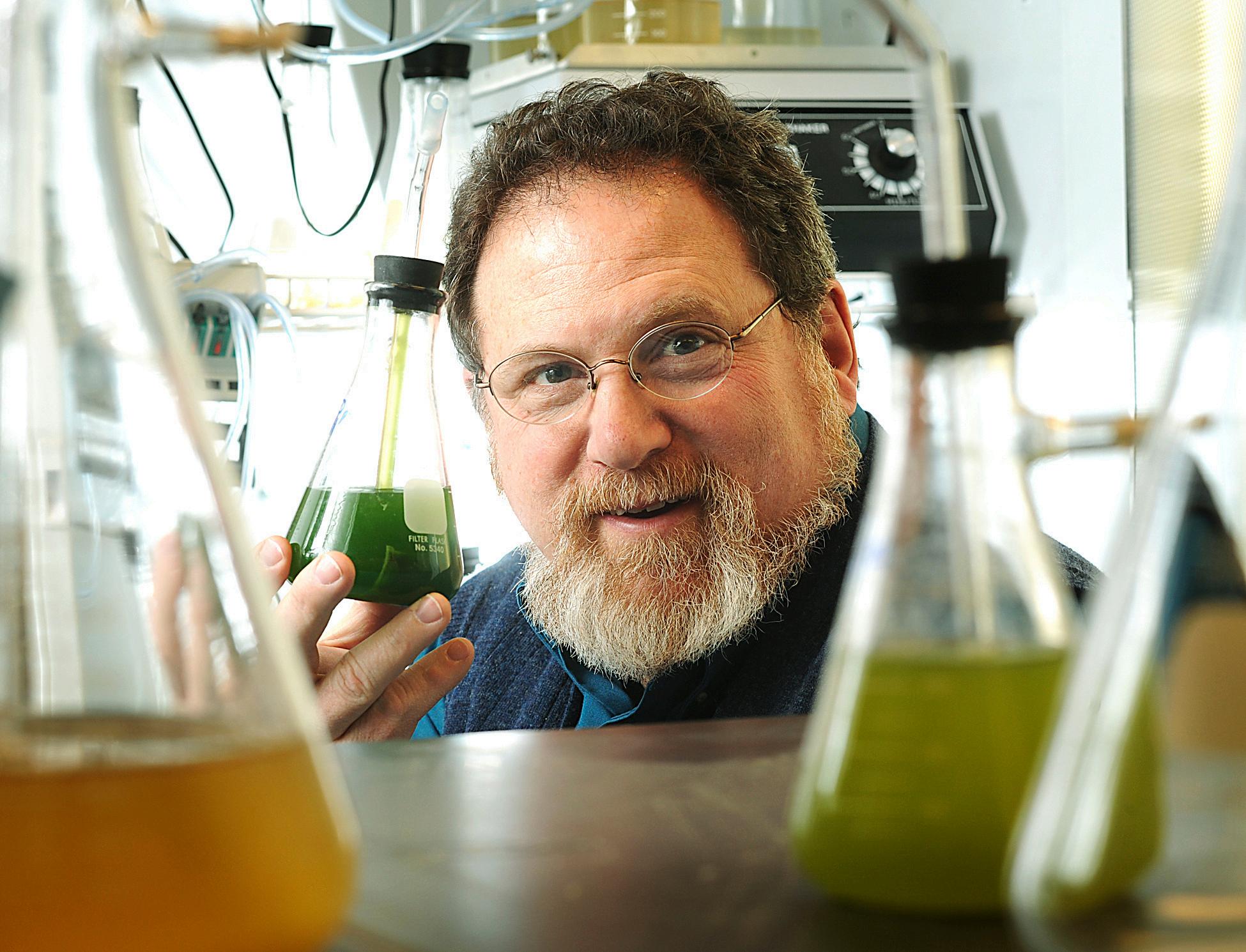
CEO, The Algae Foundation
Thank you to our board of directors, staff, and volunteers who worked relentlessly throughout 2024, making it another successful year for the Algae Foundation. We exceeded our milestones and goals and look forward to continued success in implementing our mission, vision, and strategic plan in 2025.
2024 Successes Included:
Selection of the 15 finalist teams for AlgaePrize 2023-2025, our second iteration of the national research competition;
Publication of our fourth Massive Open Online Course, MOOC 4 – Algal Blooms and Proliferations; Another record-breaking year for Algae Academy, serving over 600 teachers; Finalizing Phycoverse, an algae-based board game for the entire family; Design and manufacture of a scaled tabletop raceway pond for our Cultivate program and distribution to schools, labs, and universities; Plenary presentations at the Algae Biomass Organization Summit and the European Algae Biomass Association Meeting.
We expect 2025 to be just as productive with the inclusion of new seaweed courses, the distribution of an algae-based video game, and new biotech curricula. We are on target to reach our ultimate goal of collaborating with every school district in the United States.

We see a future that embraces algae as an essential solution for a sustainable and healthy planet.
Our mission is to promote the power of algae to enhance human society and contribute to a sustainable environment through education, workforce development, mentoring, and public outreach.
To accomplish its mission, the Algae Foundation: Establishing novel workforce development opportunities through hands-on labs, internships and externships, national research competitions, and asynchronous courses; Develops STEM educational programs offered from K-Gray (K-12, college level, adult continued education); Supports the development of future leaders throughout the algae industry through scholarships/grants and organizational support; and Facilitates communication and outreach amongst private, academic, and public sectors to increase literacy and awareness of the benefits of algae for humankind and the planet.
716 Teachers Served
61,205 Students Served Partner Organizations 45 States + Puerto Rico 50 Countries 100
All programming is offered free of charge to teachers and students All curriculum is curated by academics and industry experts Constant iteration based on real-time feedback
K-12EDUCATIONANDPROFESSIONAL DEVELOPMENT
Algae Academy
Summer Algae Science Institute (SASI)
Cultivate
Microscope Equity Grant
POST-SECONDARYEDUCATIONANDWORKFORCE DEVELOPMENT
Algae Technology Educational Consortium (ATEC)
Algal Massive Open Online Courses (Algal-MOOCs)
Algae Cultivation Extension Short-courses (ACES)
Collegiate Curriculum – Algae Cultivation and Algae Biotechnology
Micro-credentialing Digital Badging
COLLEGIATECOMPETETIONS
AlgaePrize
STUDENTSCHOLARSHIPS
Mary Rosenthal Memorial Scholarships
Phycoverse
Algae Education App *





The Algae Academy takes algae from “Ick” to “Awesome!” and has students nationwide asking big questions as they explore the potential of algae in their classrooms. The Algae Academy is a FREE, hands-on, algae-based STEM kit & NGSS-aligned curriculum that uses algae as the vehicle for exploration as students cultivate algae, monitor its growth, analyze and interpret data, and make connections as to how algae production positively impacts the global environment.
The formation of the Teacher Advisory Board proved a great asset in ensuring that our curriculum remains current. The Board is comprised of 12 teachers from across the country, all representing different grade levels and resource access. The Elementary, Middle, and High School curricula received a complete overhaul, including new worksheets, engaging videos, teacher resources, and more.


498
626
Schools Teachers
52,075
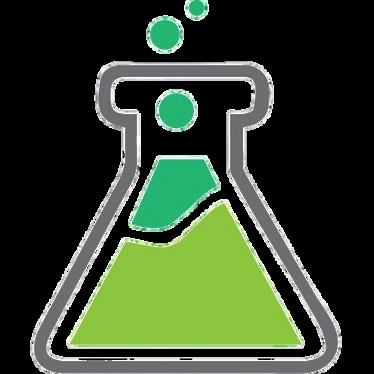
The Summer Algae Science Institute (SASI) is a hands-on professional development training that introduces educators to the Algae Academy curriculum. Trainings are available both in-person and virtually.
SASI is facilitated by Algae Academy alumni educators and takes participants through the 5 parts of the Algae Academy curriculum, including the live algae lab! In-person SASI trainings have teachers working together with lab supplies and live algae. Virtual SASI participants each receive their own Algae Academy “mini-kit” that includes everything they need to complete the lab during the virtual training.


3 In-Person Trainings
5 Virtual Trainings
82 Teachers Served
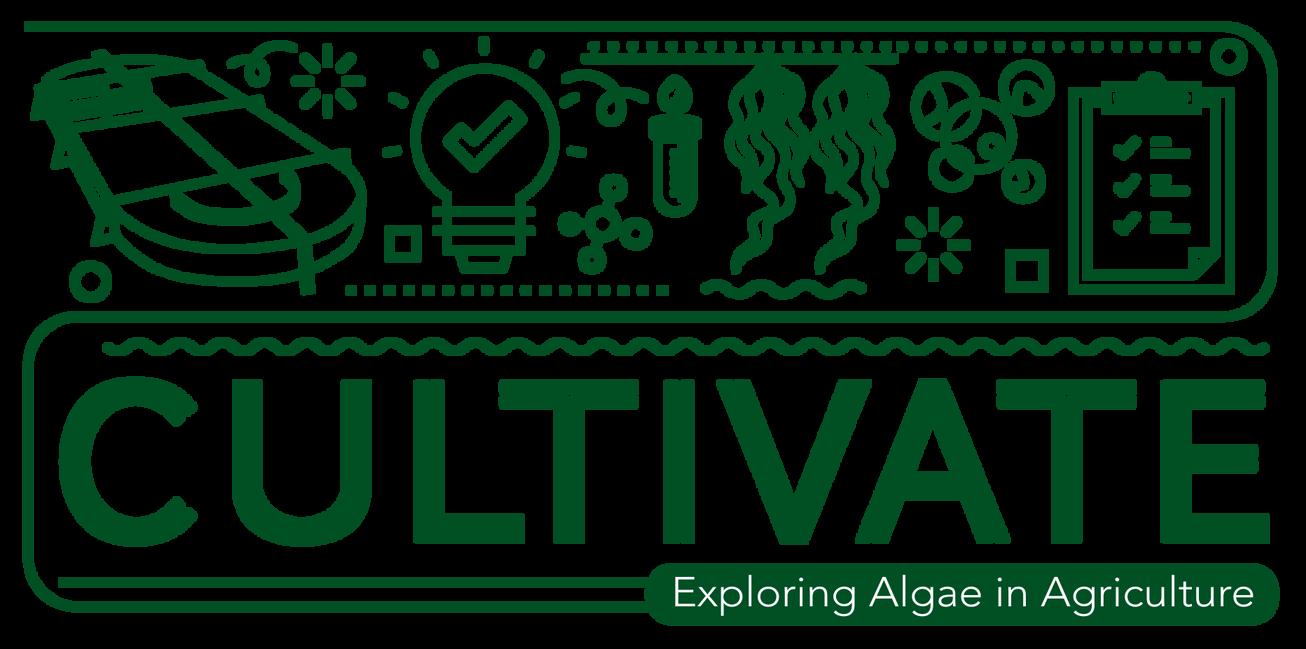
Cultivate is a hands-on, AFNR (Agriculture, Food, and Natural Resources) aligned curriculum designed for high school students. As they move through the curriculum students learn about the basic living requirements of algae, different methods of algae farming, get their hands dirty with experimental design and the inoculation of their own tabletop raceways, learn how to calculate, graph, and analyze data, and lastly, have the opportunity to develop their own algae company and product to pitch to the class.
Spring 2024 was the last semester to use Cultivate’s original algae pond. The program was paused in Fall 2024 as we completed the design, testing, and manufacturing of a new tabletop raceway that mimics industrial algal cultivation infrastructure. Our newly designed tabletop raceways are ready to be deployed in classrooms in spring 2025!



The Algae Foundation’s Algae Technology Educational Consortium (ATEC) program recognizes that algal production will provide a sustainable source of biomass for bio-based products, feed, food, and fuel, thereby creating high-quality jobs for an educated workforce.
A partnership among academic institutions, national research laboratories, and industry leaders, the Consortium’s goal is to develop novel educational programs to strengthen industry workforce capabilities by focusing on the skills needed to support the commercialization of algae and algal products. Through algal education, students learn practical applications of farming and biotechnology, developing the skills for the next generation of algal-based jobs. ATEC is currently comprised of 45 partner academic and research institutions based throughout the United States.
In March 2024, ATEC members gathered at Cooks Branch Conservancy in Montgomery, Texas, to advance the development of algal curriculum, with a particular focus on agricultural applications. In October 2024, ATEC members attended the Algae Biomass Organization’s Algae Biomass Summit in Houston, Texas, where several members served as panelists, sharing their expertise and experiences as ATEC members to help recruit new participants.

Advancements in student pathways, certification, and badging for algal cultivation and algae biomanufacturing — including the launch of the first complete biomanufacturing pathway in the United States, spanning from Associate of Science to Bachelor’s and Master’s degrees, with algae biotechnology integrated into the certificate program.
The debut of a cloud-based ATEC member portal that streamlines onboarding and improves access to curated algal curriculum.
The finalization of Phycoverse one of the first algae-themed board games ever created!
Launch of the ATEC Microscope Equity Grant - 3 teachers received 8 microscopes each to aid them in successfully completing STEM curriculua in their classrooms.



The AlgaePrize, sponsored by the U.S. Department of Energy (DOE) Bioenergy Technologies Office (BETO), managed by the Algae Foundation and assisted by the National Renewable Energy Laboratory (NREL), is a national algal-based competition that challenges students to become the next generation of bioeconomy professionals by expanding novel solutions to production, processing, and new product development, which will help lower the costs of producing algal biofuels and bioproducts. AlgaePrize spans two academic years, and competing teams range from high school through graduate programs.
50 total participating teams 200 total participating students
41 total participating schools
33 total participating states
6 total participating countries
In August 2023, the Algae Foundation launched the second iteration of the competition, AlgaePrize 2023–2025. Hundreds of students submitted innovative projects showcasing truly imaginative ideas aimed at advancing sustainable algalbased technologies in the bioeconomy.
In January 2024, 15 student teams advanced as finalists in the AlgaePrize 2023–2025 competition. Finalist teams included students from high schools, community colleges, and universities from 12 states across the United States and Puerto Rico.
Throughout 2024, the 15 finalist teams conducted research on a diverse range of innovations, including improving commercial seaweed cultivation, creating nanomaterials from macroalgae, using machine learning to predict optimal locations for future algae farms, and developing food coatings—just a few of the many outstanding ideas proposed by the students.

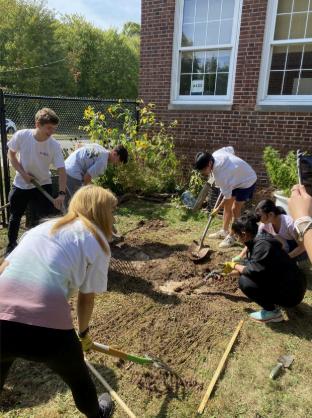

AlgaeNano+, San Juan, Puerto Rico: Developing carbon nanomaterials from macroalgae for use in high-demand industries like battery manufacturing, energy, and environmental remediation.
AlgaeUnlocked, Carbondale, Illinois: Exploring a low-energy, cost-effective, and efficient process for preparing microalgae for conversion into biostimulants and biofuels.
Algators, Livingston, New Jersey: Investigating algal biomass as an alternative nonsynthetic fertilizer for a local farm.
Aloha Limu, Hilo, Hawaii: Studying vertical seaweed cultivation methods to diversify and scale up production of native Hawaiian macroalgal species.
BlazerBloom, Frederick, Maryland: Using bioflocculation with magnetotactic bacteria to harvest and dewater microalgae for conversion into biofuels production.
Blue Genes, Fairfield, California: Creating an algae-derived dye with a focus on process optimization, improving output, and as a method to teach the community about algal products.
Clean Green Feed, Storrs, Connecticut: Producing a sustainable strain of microalgae high in methionine for use in chicken feeds.
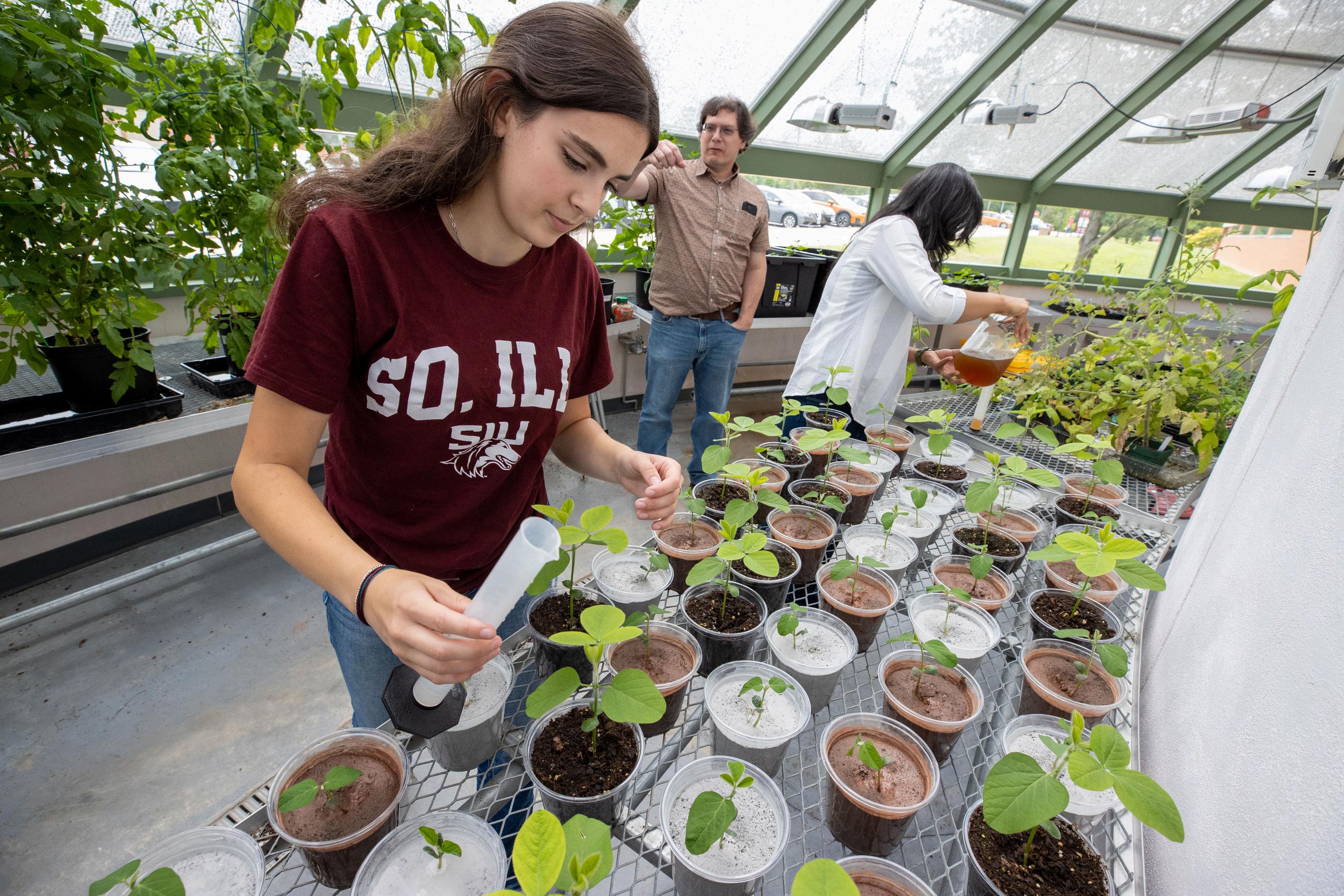
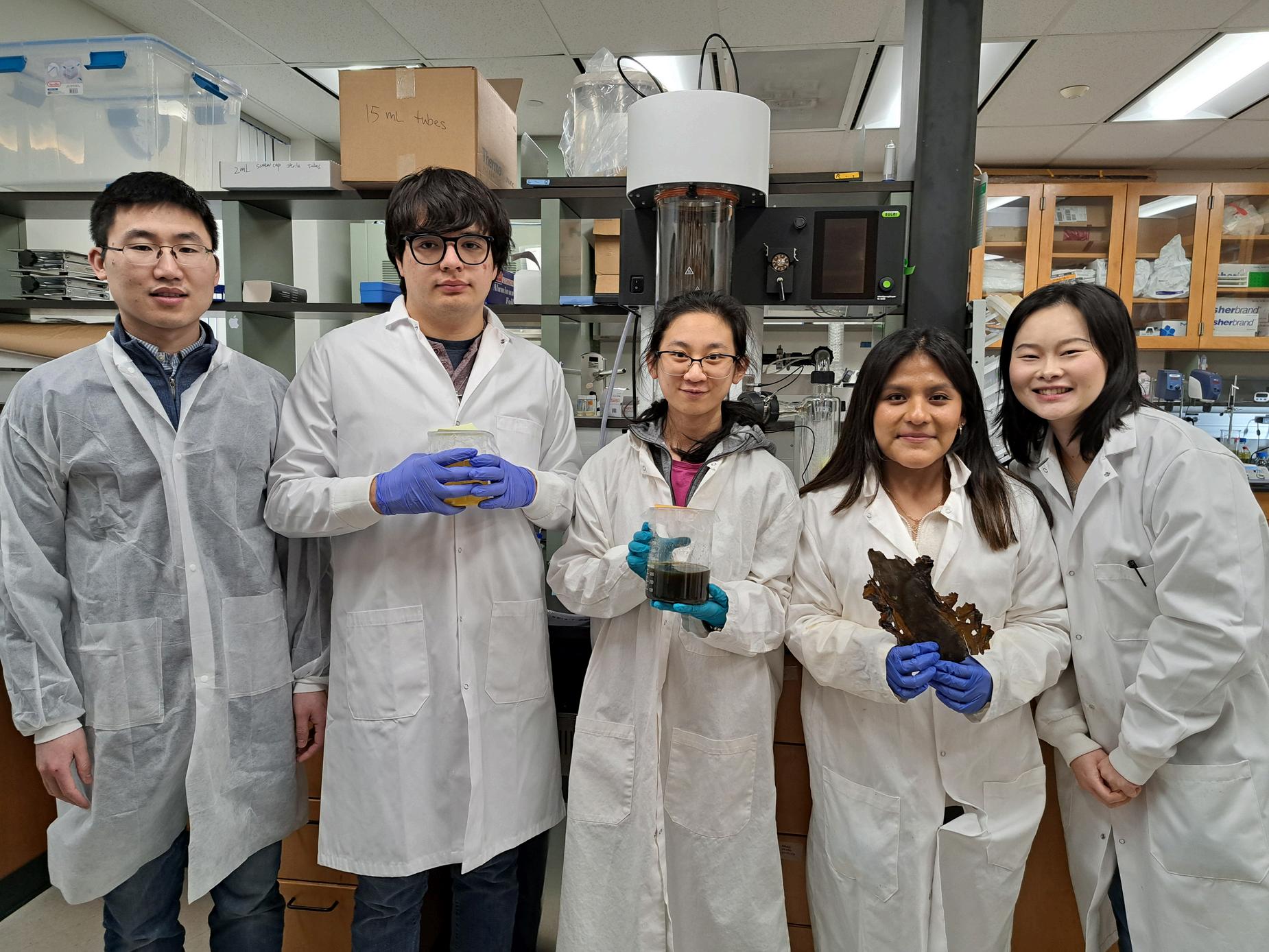

Green Skies, Minneapolis, Minnesota: Applying machine-learning techniques to analyze land suitability, water stress, and economic factors to identify the best sites for Midwest microalgae growth.
Green Thumbs, Golden, Colorado: Working to improve the harvestability of saltwater microalgae by using a novel pH-mediated-electroflocculation method.
JCCC Chlorella Cavaliers, Overland Park, Kansas: Developing a novel strain of Chlorella expressing plastic degrading enzymes to improve water quality in ecosystems.
Just AD Algae, Santa Fe, New Mexico: Preparing a scalable system to co-digest microalgae with organic lipid waste, decreasing biogas production lag, and increasing biogas yield.
KelBerry, Storrs, Connecticut: Employing sugar kelp alginate as an edible food coating to extend strawberry shelf life.
Parachlorella Plastic Pals, La Jolla, California: Creating algae-based, biodegradable thermoplastic polyurethanes.
Team ASAP, Camas, Washington; Los Angeles and Irvine, California: Developing an efficient and scalable process for the industrialization of sporophyte generation.
The Algenius Thinkers, Austin, Texas: Studying the production of long-chain fatty acids from algae into short-chain fatty acids for lower biofuel production costs.
In partnership with C.R.E.S. Laboratories and Idaho National Lab, the Algae Foundation hosted the Algae Learning and Growth Adventure (ALGA) workshop at the University of Puerto Rico, Río Piedras campus. The event welcomed students, faculty, and guests for insightful lectures on algae, engaging hands-on workshops, field excursions, and a seaweed products trade show dinner.
Participants toured an underwater seaweed farm in La Parguera, offering them the chance to snorkel and gather wild seaweed. The collected seaweed was later pressed and dried to create algal art.
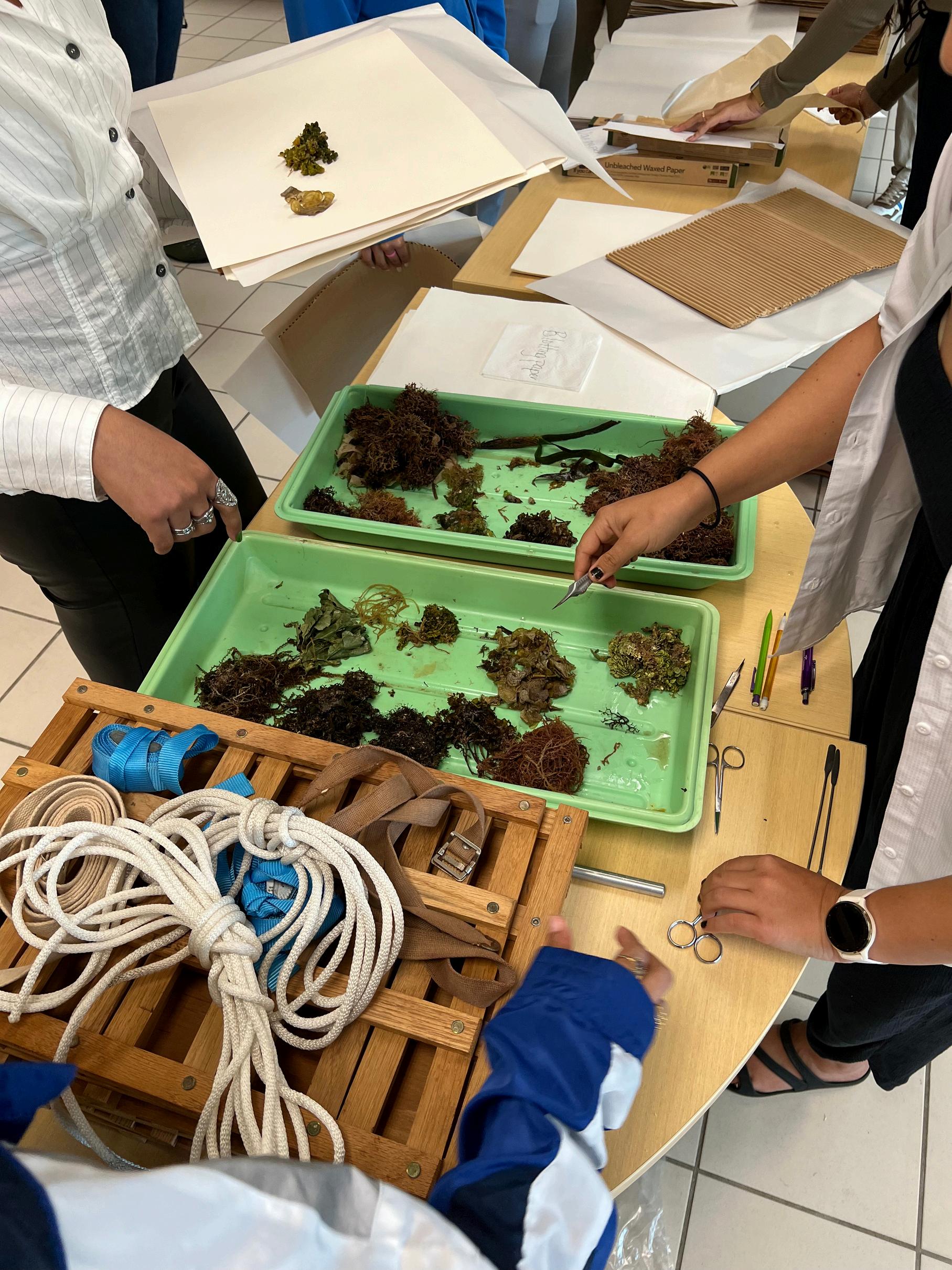

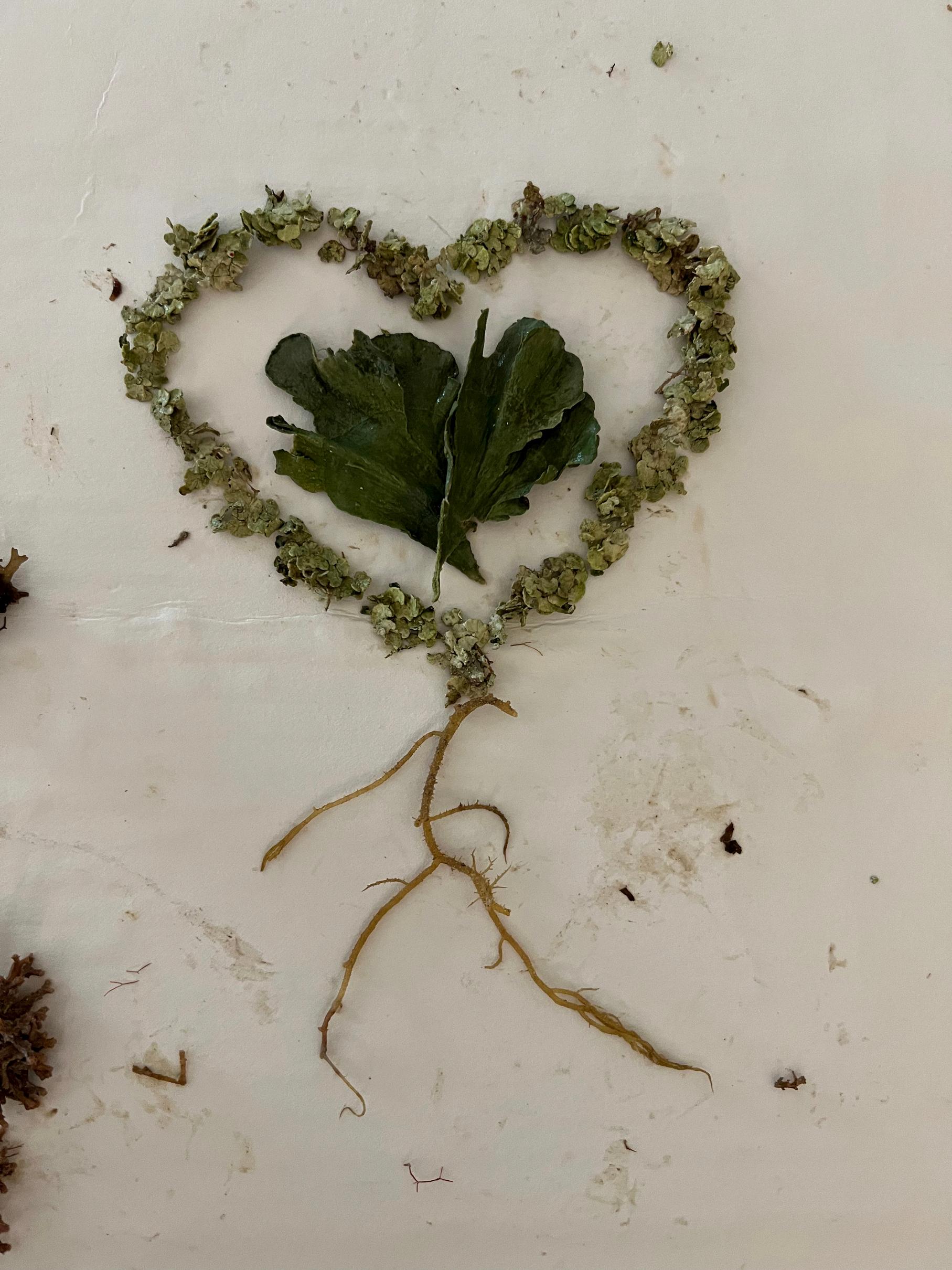
The Mary Rosenthal Memorial Student Travel Grant supports students presenting a poster or oral presentation at the annual Algae Biomass Summit. Mary Rosenthal was the first executive director of the Algae Foundation and a champion for STEM education. These grants are dedicated to her memory.
Abstract Summary:

Oregon State University
Oral Presentation: Aeration and Power Requirements for CO2-Replete Cultivation of Red Seaweed in Tumble and Recirculating Raceway Tanks
Red seaweeds are a sustainable source of healthy food, plant-based proteins, and carbohydrate feedstocks for conversion to sustainable chemicals and fuels. We developed clonal cultures of red seaweed that grow out as densified spherical balls ranging from 3 to 7 cm in diameter, and compared their intensified cultivation in landbased tumble-tank and recirculating raceway tank cultivation systems. In tumble tanks, bubble aeration provides biomass suspension, which has high power consumption. Recirculating raceway tanks use paddle wheels to suspend the biomass, reducing aeration requirements to delivery of CO2 needed for biomass production. Fundamental relationships between aeration rate, biomass productivity, and aeration power consumption were developed for tumble tank and raceway cultivation under CO2-replete growth conditions. Overall, raceway cultivation systems offer higher productivity at lower aeration requirement relative to tumble tanks. This study shows the importance of aeration in the design and scale-up of engineered cultivation platforms for intensified, land-based red seaweed aquaculture.
Calling all algae enthusiasts and game lovers! In Phycoverse, players take on the role of pioneers for the advancement of algae technology, they become Phyconeers! As Phyconeers, players discover and cultivate various types of algae in order to complete missions that will demonstrate innovative uses of algae across many industries in a race against the evils of toxic algae blooms that can sour people’s impression of algae and disrupt the adoption of algae technology. Phycoverse is available for sale on our website.






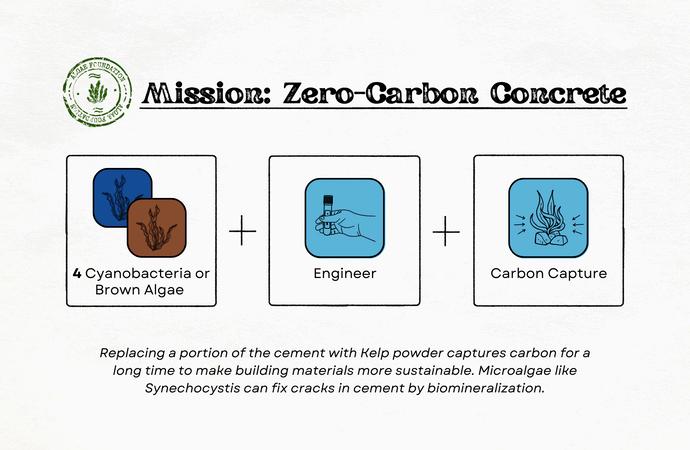
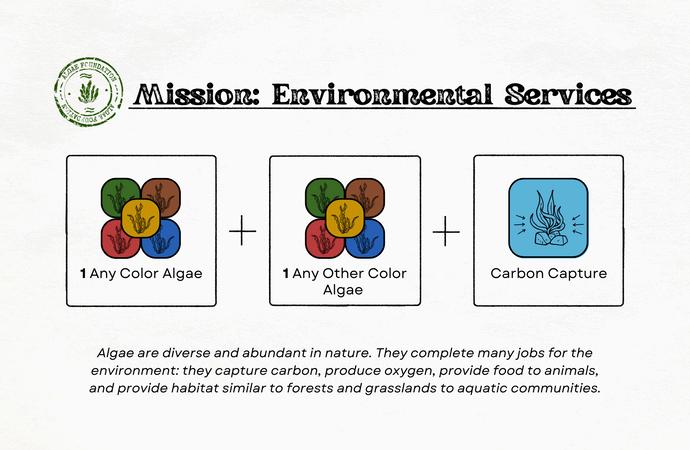


The Algae Foundation is governed by a Board of Directors comprised of outstanding professionals in business, commercial industry, national laboratories, and academics. This Board’s primary focus is fundraising to ensure continued support of ongoing programming and the development of new initiatives.
Tiffany Cannis
Board Chair
Greg Mitchell
Co-Vice Chair
Jesse Traller Ojeda
Co-Vice Chair
Edmund Gaither
Treasurer
Jake Nalley
Secretary
Peter Koffler
Philip Pienkos
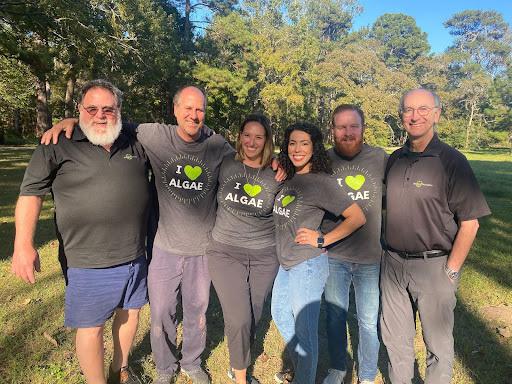
We want to extend our heartfelt thanks to those who have supported us this year and in years past: our funders, our partners, our peers. Thank you.
ALGAE BIOMASS ORGANIZATION
ALLAN HANCOCK COLLEGE
AUSTIN COMMUNITY COLLEGE
BAXTER CENTER FOR SCIENCE EDUCATION AT NORTHWESTERN
BIOPHARMACEUTICAL TECHNOLOGY CENTER INSTITUTE (BTC INSTITUTE)
BIGELOW LABORATORY FOR OCEAN SCIENCES
CALIFORNIA STATE UNIVERSITY, FRESNO
CONTRA COSTA COLLEGE
DEL VALLE HIGH SCHOOL
DELGADO COMMUNITY COLLEGE
DEPARTMENT OF ENERGY, BIOENERGY TECHNOLOGIES OFFICE (BETO)
FLORIDA INTERNATIONAL UNIVERSITY
HARMON CONSULTING
HAWAII COMMUNITY COLLEGE
IDAHO NATIONAL LABORATORY
INSTITUTE FOR SYSTEMS BIOLOGY (ISB)
JAMES ENOCHS HIGH SCHOOL
JOHNSON COUNTY COMMUNITY COLLEGE
KENNEDY-KING COLLEGE
LAS ALAMOS NATIONAL LABORATORY
LAS POSITAS COLLEGE
LANEY COMMUNITY COLLEGE
LEEWARD COMMUNITY COLLEGE
LENOIR COMMUNITY COLLEGE
LIVINGSTON HIGH SCHOOL
LONE STAR COLLEGE
MIDLAND COLLEGE
NATIONAL FFA ORGANIZATION
NATIONAL RENEWABLE ENERGY LAB
NATIONAL SCIENCE TEACHERS ASSOCIATION
OAKLAND UNIVERSITY
PIERCE COLLEGE
PRAIRIE VIEW A&M UNIVERSITY
RUTGERS UNIVERSITY
SANTA FE COMMUNITY COLLEGE
SHORELINE COMMUNITY COLLEGE
SOLANO COMMUNITY COLLEGE
SOUTH TEXAS COLLEGE
UNIVERSITY OF ARKANSAS – FORT SMITH
UNIVERSITY OF CONNECTICUT
UNIVERSITY OF SOUTHERN MAINE
TARLETON STATE UNIVERSITY
UNIVERSITY OF TEXAS AT AUSTIN
UTEX CULTURE COLLECTION
UNIVERSITY OF TEXAS RIO GRANDE VALLEY
UNITED STATES DEPARTMENT OF AGRICULTURE, NATIONAL INSTITUTE OF FOOD AND AGRICULTURE (NIFA)
WINDWARD COMMUNITY COLLEGE
